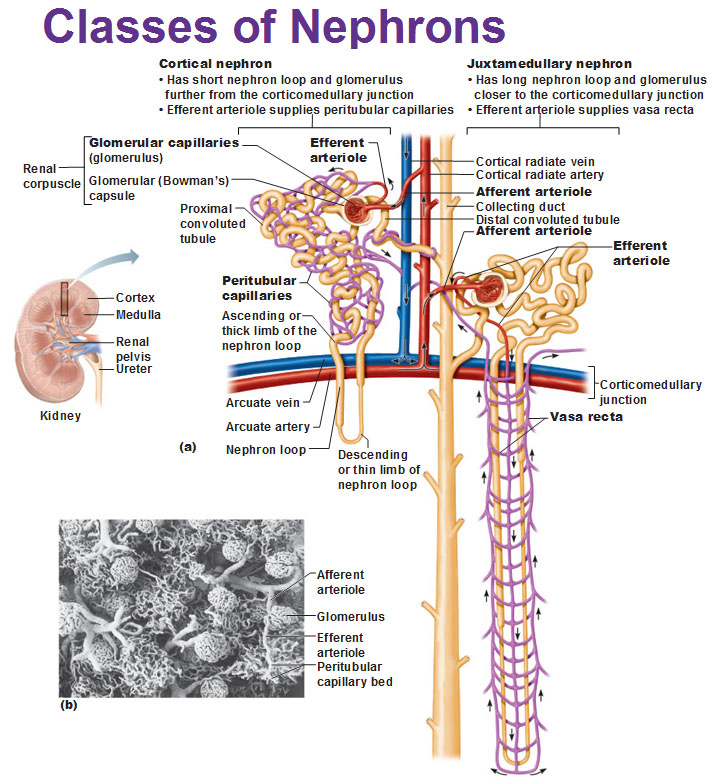The nephrons carry out all the important contributions the kidneys make in the maintenance of homeostasis of the body.
It is these nephrons by the cellular activities of which the kidneys play their vital role in maintaining constancy of the internal environment through the regulation of the composition of the blood plasma. How this is accompanied is explained under the following four functions:
1. Regulation of fluid-balance:
ADVERTISEMENTS:
The kidneys regulate the constancy of the water content in the body in relation to amount of fluid intake and the amount of fluid lost, through the skin and the gastrointestinal tract.
For example, if a patient has vomiting and diarrhoea and the loss of fluid is not compensated for by a corresponding increase in the amount of fluid intake, the kidneys will excrete a little amount of urine in order to conseve as much as possible, the body fluids.
2. The elimination of nitrogenous wastes:
The nitrogenous wastes formed in the protein metabolism are removed from the body by the kidneys in the form of solution called urine.
Thus, the kidneys maintain the acid-base balance of the blood. The filtration of these waste products from the blood is carried out by these nephrons.
3. The removal of other substances from the blood:
ADVERTISEMENTS:
Nitrogenous substances are not only removed by the kidneys but other substances like mineral salts; drugs as iodides, santonin and arsenic and bacteria are also removed from the body by the kidneys.
The kidneys participate in regulation of arterial blood pressure by secreting a hormone venia which is used by the body to maintain haemostasis.
4. The maintenance of acid-base balance:
The kidneys assist to a great extent in the maintenance of acid-base balance of the body after removing the various inorganic salts and nitrogenous wastes of the blood.

